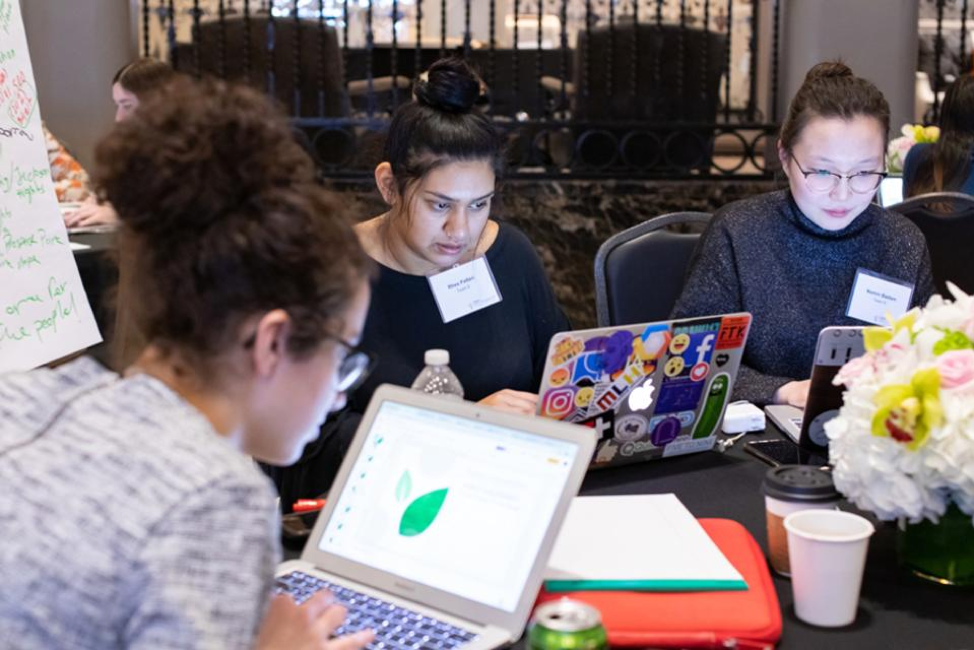As women remain dramatically underrepresented across all STEM studies and careers, how do we make strides to close the gender gap and fuel the next generation of female innovators? At a time when technology continues to transform the way we live, work and learn, the need to close the STEM gender gap is more critical than ever.

With that mission in mind, Forbes partnered with Audi of America in March to host the second annual “Idea Incubator,” a program dedicated to inspiring future STEM leaders by bringing together emerging talent to solve real-world challenges through a STEM lens. Students from the New York University Tandon School of Engineering were tasked with developing innovative solutions around the impact electric vehicles will have on urban mobility. The top two winning teams of students walked away with awards from the “Audi Drive Progress Grant,” a combined $50,000 scholarship toward their studies.
I asked the young women of the first place team to share for their best advice on unlocking opportunities for the next generation of women in STEM. From pushing past fear of the unknown to denying false stereotypes, their insights and lessons learned highlight what to expect for those who want to follow in their footsteps.
Get Comfortable Feeling Uncomfortable
“My advice for women wanting to enter the STEM field would be to not be afraid to get uncomfortable. Often times, you may find opportunities that you think you can’t do, but the truth is that you really can. It’s okay to feel uncomfortable and try things you’ve never done before because you never know, it might turn out that you actually like it. For example, I was never a fan of coding or computer science. I took a coding class in high school and I was completely lost, I didn’t believe that I could really do this as a career. It wasn’t until I got to be a part of programs like Women in Technology, where I got to actually shadow women in the tech industry, and Kode with Klossy, where I got to learn coding and collaborate with other young women interested in coding, that I actually realized that coding isn’t really that bad, and now I am pursuing a computer science! Be comfortable with trying new things, and don’t be afraid to reach out to others!”
Vidya Gopalakrishna, Freshman, Computer Science Major
Push Past Gender Stereotypes
“Choosing to follow a path less traveled by those of your demographic will always be a difficult decision. Even more challenging, however, is sticking to that path as you’re continually faced with the actions and opinions of those who are implicitly biased towards maintaining a particular status quo. My best advice to women aiming to pursue careers in STEM fields is to succeed in the face of this opposition with as much grandeur as possible. Recognize that there exists in some this internal bias but refuse to let it corrode your sense of self-worth and limit what you think yourself capable of. Bring to the table your unique perspective and hard-earned talents and no one can reasonably refuse you a seat.”
Nicole Lyons, Freshman, Chemical and Biomolecular Engineering Major
Network Your Way To Success
“When answering this question last year, I emphasized the importance of busting the math myth; a myth in which excelling in math was a prerequisite to pursuing a career in STEM. While this sentiment still rings true, I want to emphasize the importance of networking. Fostering meaningful relationships for your professional career is necessary to enter and succeed in a STEM field. Networking can be as simple as participating in school clubs, signing up for tech newsletters, or even going to your professor’s office hours.
I was first introduced to STEM when a high school friend asked me if I wanted to join the robotics team he created for our school. Had I not had him in my personal network, I would never have taken STEM seriously as a profession. Amazingly, these small interactions have had a domino effect. I’ve managed to build my network by expressing my passions with professors who have then later recommended me for research positions and even been my reference contacts in my job search. Staying in touch with school administrators has been greatly beneficial.”
Aida Mehović, Senior, Computer and Electrical Engineering Major
